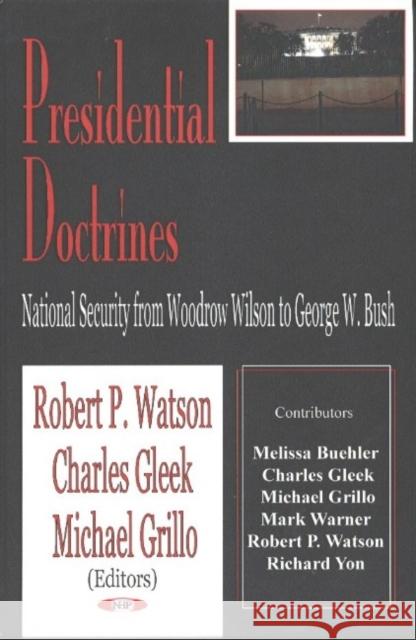Presidential Doctrines: National Security from Woodrow Wilson to George W Bush » książka
Presidential Doctrines: National Security from Woodrow Wilson to George W Bush
ISBN-13: 9781590338124 / Angielski / Twarda / 2003 / 146 str.
The terrorist attacks against the United States on 11 September 2001 prompted a president, who had until then largely been disinterested in international affairs, to a new level of commitment to foreign policy. So too did the tragedy renew American awareness of the precarious state of national security, even in the post-Cold War era. As so often has occurred in American history, the events also occasioned a new approach to national security policy, conceived in the specific threat, fashioned by the international environment, and reflecting the president's worldview and ideological orientation. As is the case of the events (threats) themselves, the national security response they foster is often so dramatic that it comes to define the presidency of its maker, influence affairs far beyond America's borders, and dictate US foreign and national security policy for years to come. Shifts in US national security thinking of this magnitude are referred to as presidential doctrines. Often, these doctrines -- axioms that bear the president's name -- have been delivered in a major address by the president such as a speech to a joint session of Congress. The first presidential doctrine was ann











